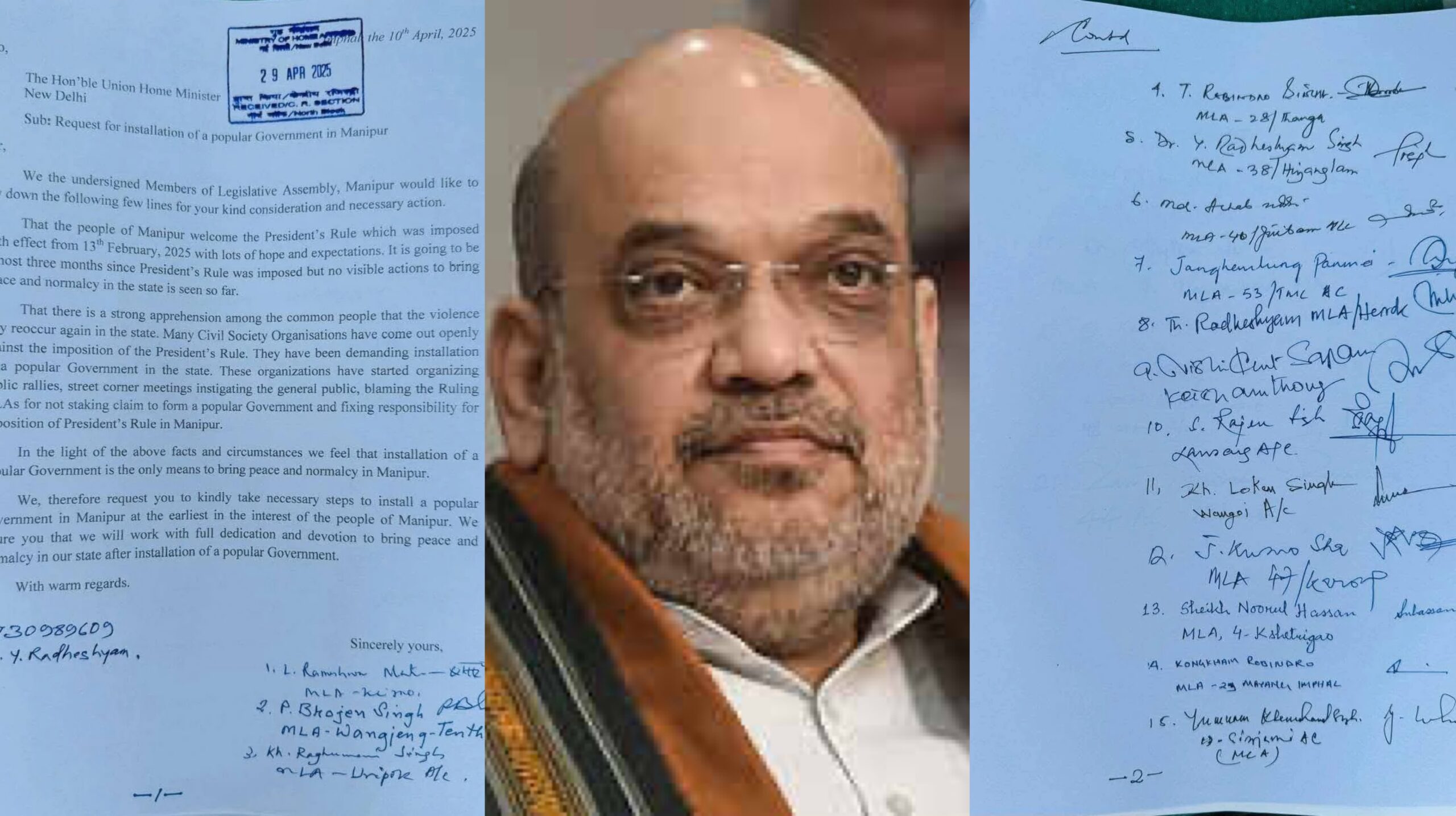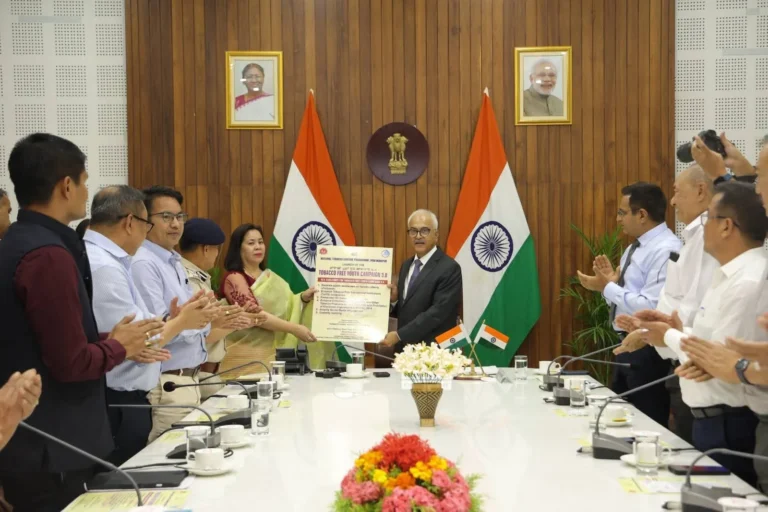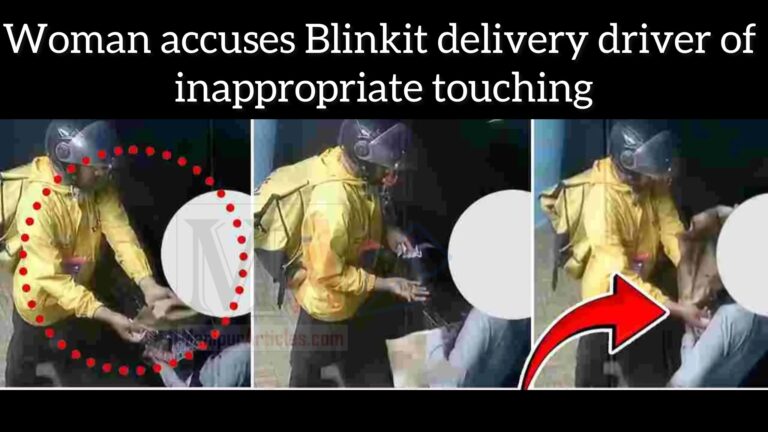21 Manipur MLAs Urge Amit Shah to Restore Popular Government Amid Ongoing Unrest
Brief Summary
On April 30, 2025, twenty-one Members of the Legislative Assembly (MLAs) from Manipur submitted a memorandum to Union Home Minister Amit Shah, advocating for the immediate reinstatement of an elected government in the state. Manipur has been under President’s Rule since February 13, 2025, following the resignation of Chief Minister N. Biren Singh amid escalating ethnic violence. The MLAs, comprising members from the Bharatiya Janata Party (BJP), National People’s Party (NPP), Naga People’s Front (NPF), and independents, expressed concern over the lack of progress in restoring peace and normalcy. They emphasized that the installation of a popular government is crucial to address the ongoing unrest and meet the aspirations of the people.
In-Depth Analysis: The Push for Democratic Restoration in Manipur
Understanding the Political Vacuum
Manipur, a state in northeastern India, has been grappling with ethnic tensions and violence since May 2023, primarily between the Meitei and Kuki-Zo communities. The situation deteriorated to the extent that President’s Rule was imposed in February 2025, suspending the state’s legislative assembly. While this move was initially welcomed as a step towards restoring order, the absence of an elected government has led to administrative stagnation and growing public dissatisfaction.
The MLAs’ Collective Appeal
The memorandum submitted by the 21 MLAs underscores the urgency of reinstating a democratically elected government. They argue that a popular government is essential for effective governance, accountability, and addressing the root causes of the unrest. The MLAs also highlighted the increasing public pressure and civil society movements demanding the restoration of democratic processes.
Composition of the Signatories
The signatories include 13 MLAs from the BJP, 3 from the NPP, 3 from the NPF, and 2 independents. This diverse coalition reflects a broad consensus across party lines on the need for political stability and democratic governance. Notable signatories include Paonam Brojen (Wangjing-Tentha), Lourembam Rameshwor (Keirao), and Janghemlung Panmei (Tamenglong)
Public Sentiment and Civil Society’s Role
The prolonged absence of an elected government has led to widespread public discontent. Civil society organizations have been vocal in their criticism, organizing rallies and meetings to demand the reinstatement of democratic governance. The MLAs’ memorandum acknowledges this growing unrest and the risk of further violence if the political vacuum persists
Criticism from Opposition Parties
The move by the 21 MLAs has not been without controversy. The Manipur Pradesh Congress Committee, led by Keisham Meghachandra Singh, criticized the MLAs for bypassing the constitutional route by not approaching the Governor to stake a claim for government formation. Singh accused them of political insincerity and questioned their commitment to democratic principles .
The Path Forward
For Manipur to transition from President’s Rule to a stable, elected government, several steps are necessary:Hindustan Times+5India Today NE+5e-pao.net+5
- Consensus Building: Political parties must engage in dialogue to form a coalition that reflects the diverse interests of the state’s communities.
- Engagement with the Governor: A formal approach to the Governor to stake a claim for government formation is essential to adhere to constitutional protocols.
- Addressing Root Causes: Any new government must prioritize addressing the underlying ethnic tensions and implementing policies that promote inclusivity and reconciliation.
- Ensuring Security: Restoring law and order is paramount to create an environment conducive to governance and development.
Conclusion
The appeal by the 21 MLAs represents a significant step towards restoring democratic governance in Manipur. While challenges remain, including political consensus and addressing deep-seated ethnic divisions, the reinstatement of an elected government is crucial for the state’s stability and progress. It is imperative for all stakeholders to collaborate and prioritize the welfare of Manipur’s citizens.The Economic Times+1e-pao.net+1
❓ FAQs
Q1: Why was President’s Rule imposed in Manipur?
President’s Rule was imposed on February 13, 2025, following the resignation of Chief Minister N. Biren Singh amid escalating ethnic violence between the Meitei and Kuki-Zo communities.India Today NE+5The Economic Times+5www.ndtv.com+5
Q2: Who are the MLAs advocating for the restoration of the elected government?
The group comprises 21 MLAs from various parties: 13 from the BJP, 3 from the NPP, 3 from the NPF, and 2 independents.The Economic Times+1www.ndtv.com+1
Q3: What are the main concerns highlighted in the MLAs’ memorandum?
The MLAs expressed concerns over the lack of progress in restoring peace and normalcy under President’s Rule and emphasized the need for a popular government to address the ongoing unrest.e-pao.net+5The Economic Times+5Hindustan Times+5
Q4: How has the public reacted to the prolonged President’s Rule?
There has been growing public dissatisfaction, with civil society organizations organizing rallies and meetings to demand the reinstatement of democratic governance.India Today NE+1e-pao.net+1
Q5: What steps are necessary for forming a new government in Manipur?
Political parties need to build a consensus, formally approach the Governor to stake a claim, and prioritize policies that address the root causes of unrest and promote inclusivity.www.ndtv.com




